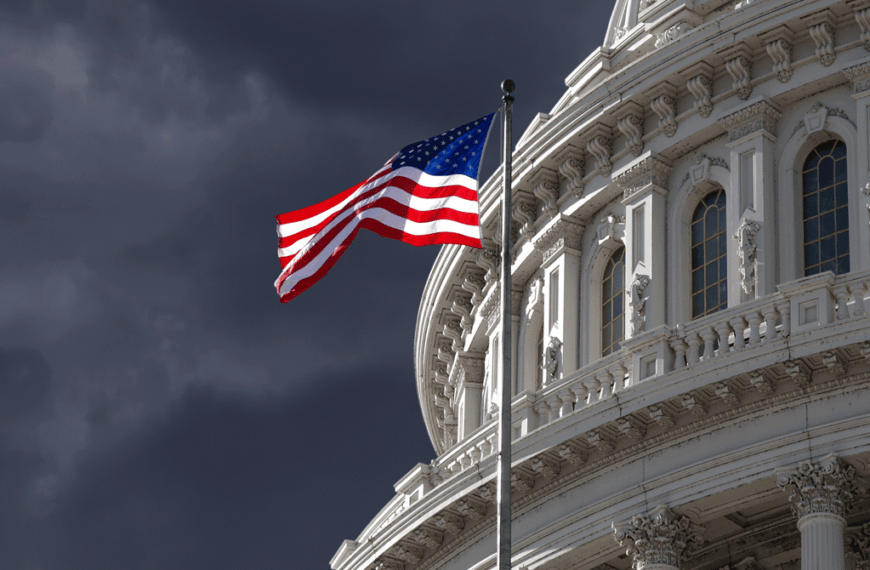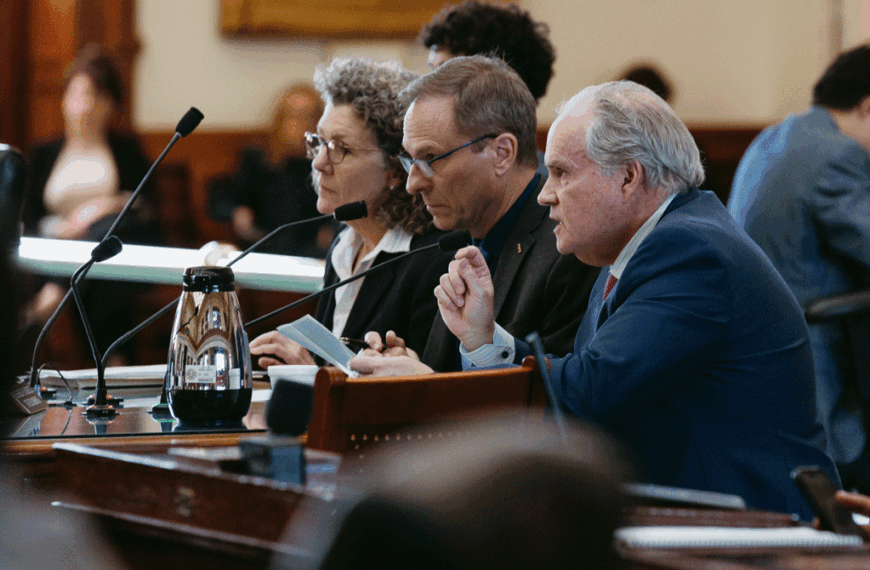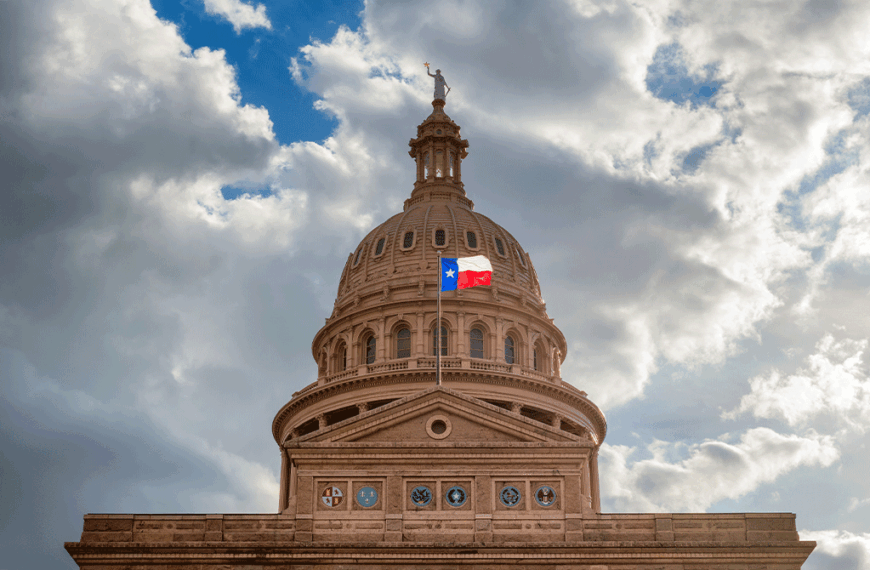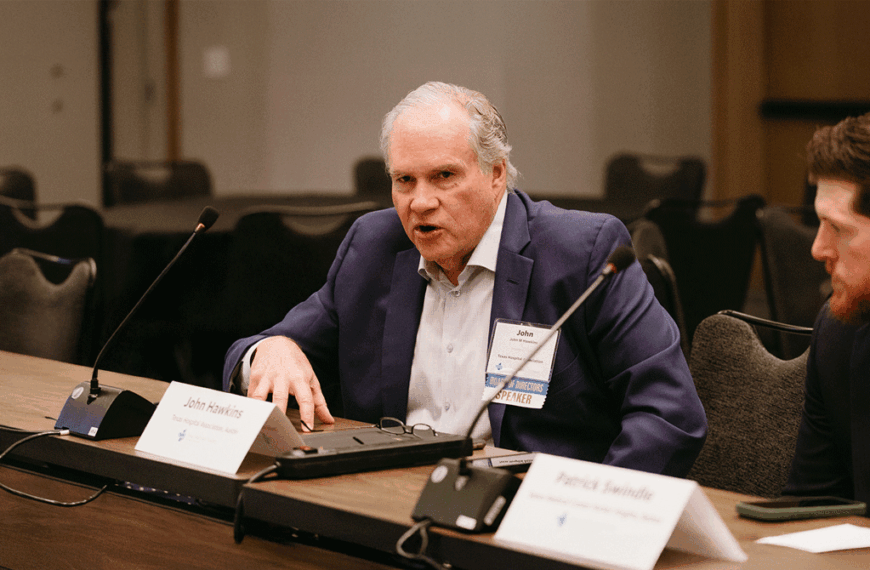Following the 2025 Texas Legislature’s adjournment sine die, Texas hospitals are showing abundant signs of life.
The Legislature’s usual odd-year lawmaking sprint came to an end Monday after four-and-a-half months in which the Texas Hospital Association had to juggle its usual advocacy at the Texas Capitol with the demands of high-importance discussions in Washington, D.C. The push by congressional Republican lawmakers there to pass a budget reconciliation package – including hundreds of millions in Medicaid cuts – necessarily divided THA’s attention during a time when action in Austin normally is Texas hospital advocates’ foremost focus.
THA navigated the juggling act with aplomb and came away with big wins in Austin as it sought to protect Texas’ Medicaid funding arrangements in Washington. The results from the 89th regular state session constitute another successful ledger of legislative achievements that bolster Texas hospitals in many areas – and prevent the state’s health care landscape from troubling regression in others. Here’s a quick look at some of those key results.
Liability – THA and the Texas Medical Association worked in close concert to support Senate Bill 31 by Sen. Bryan Hughes (R-Mineola), which clarifies the medical emergency exception to Texas’ near-total abortion ban. Known as the Life of the Mother Act, it will clarify that the pregnant mother’s death does not need to be imminent in order for a physician to legally terminate a pregnancy in the case of a life-threatening emergency. This bill was a priority for Lt. Gov. Dan Patrick entering session.
Trauma/EMS funding – Gov. Abbott already signed Senate Bill 1018 by Sen. Joan Huffman (R-Houston), which goes into effect on Sept. 1. The THA-supported measure will provide more revenue for the state’s trauma and emergency medical services account by increasing the percentage of traffic fine revenue allocated toward that account from 30% to 50%.
Facility fees – A battleground and a cause célèbre for attacks on hospitals during the 2023 legislation, facility fee legislation again occupied THA’s attention this year as lawmakers sought to curb or outright ban these necessary hospital payments. In this session, however, THA made headway working with the authors of House Bill 2556 by Rep. James Frank (R-Wichita Falls) and Senate Bill 1232 by Sen. Kelly Hancock (R-North Richland Hills) before those bills died and noise around the issue wound down, with no facility fee restrictions passing.
Hospital security – The Legislature acted to protect hospitals following a shooting incident at Methodist Dallas Medical Center in 2022 that killed two hospital workers. Lawmakers passed House Bill 2854 by Rep. Rafael Anchía (D-Dallas), which requires notification to a hospital before a visit by a parolee who was convicted of a violent offense and is under mandatory electronic monitoring.
Medicaid and the budget – The negotiations and political posturing over Medicaid cuts at the federal level didn’t affect advocacy work at the state Capitol, where budget writers held the line on Medicaid funding in the state budget for the 2026-27 biennium. Importantly, the Legislature provided level funding (as compared to the 2024-25 budget) for crucial hospital add-on payments such as the $1,500 add-on for Medicaid rural labor and delivery services.
Behavioral health – The passage of Senate Bill 646 by Sen. Royce West (D-Dallas) will be a boost to behavioral health care in mental health professional shortage areas. The bill adds new eligible mental health provider types for the state’s Loan Repayment Program for Mental Health Professionals and offers additional repayment assistance for certain mental health workers, such as those with fluency in a language of need in the professional’s practice area.
Insurer regulation and AI – THA-supported Senate Bill 815 by Sen. Charles Schwertner, M.D. (R-Georgetown), passed the Legislature. It would prohibit insurers from making any adverse utilization review determination based on an automated decision system, “wholly or partly.” House Bill 149 by Rep. Giovanni Capriglione (R-Southlake), also awaiting action by the governor, is a broader artificial intelligence regulation vehicle. In part, it prohibits the use of AI for uniquely identifying someone based on biometric data and also bars its use for “social scoring,” meaning evaluating a person or group “based on social behavior or personal characteristics.” It also contains disclosure requirements around the use of AI for health care services or treatment.
Vaccines and exemptions – The measles outbreak in West Texas provided a stark backdrop to discussions around vaccines at the Capitol but didn’t appear to slow the momentum of anti-vaccine sentiment among lawmakers. Still, the worst bills related to vaccines and conscientious objections were halted short of the finish line, including Senate Bills 407 and 619, both of which THA testified against. SB 407 would have prohibited health care facilities from rejecting any vaccine exemption for any reason, including religious beliefs. SB 619 would have allowed providers to opt out of participating in a health care service for reasons of conscience. However, the Legislature did pass the problematic House Bill 1586 by Rep. Lacey Hull (R-Houston), which pertains to public school exemptions. The bill makes the state’s blank affidavit for a vaccine exemption readily available for download on the Texas Department of State Health Services website.
Hospital fraud investigations – THA stopped House Bill 4012 by Rep. Dennis Paul (R-Houston) on the House floor. HB 4012 would have established a bounty-type system allowing any citizen to sue over alleged health care fraud, even if they weren’t affected by it. THA stressed that the bill invited even more government intervention in private contract disputes and created a “welcome mat for frivolous lawsuits.”
Hospital operations – With THA’s help, several bills that would have had a detrimental impact on hospital operations met their deaths. THA spoke out in testimony against the likes of Senate Bill 2043 by Sen. Hughes, an anti-retaliation bill that would have prohibited hospitals from taking action against any employee for constitutionally protected speech or conduct, even if it reflected poorly on the hospital; Senate Bill 1373 by Sen. Chuy Hinojosa (D-McAllen), a bill championed by podiatrists that would have mandated a “consistent manner” of granting hospital privileges; and Senate Bill 660 by Sen. West, a mandate to install crash barriers in front of hospital emergency departments. THA helped defeat SB 660 in the face of repeated local media coverage favoring the bill.
The last day that Gov. Abbott can sign or veto bills from this session is Sunday, June 22. Stay tuned for THA’s upcoming end-of-session report, “Health Care and the 89th Texas Legislature: Outcomes for Texas Hospitals.” The report will provide a full accounting of THA’s efforts during session, bills that passed, and bills that did not.
Related articles from The Scope
Unseen Savings: Charity Care, Community Benefit and the Safety Net
Continued investment in charity care and community benefit programs remains…
Let the Shutdown Be a Reminder: Hospitals Need Long-Term Certainty From Congress
At the start of this month, the federal government shut…
In This Special Session, We Stressed Why Hospitals Themselves Are Special
During the special session of the Texas Legislature that just…
Download THA’s 2025 New Health Care Laws Guidebook
After each regular session of the Texas Legislature, hospitals and…
Texas Needs Congress to Renew Soon-to-Expire Premium Credits
A fair number of times in this column’s history, you’ve…
“Surreal”: Responding to a Disaster
Kerrville hospital plays a key role in July flood response;…






